Binary Hacks ―ハッカー秘伝のテクニック100選 pdf epub mobi txt 電子書 下載 2024

簡體網頁||繁體網頁
圖書標籤: linux hack Programming 計算機科學 計算機 binary unix 日文書
喜歡 Binary Hacks ―ハッカー秘伝のテクニック100選 的讀者還喜歡
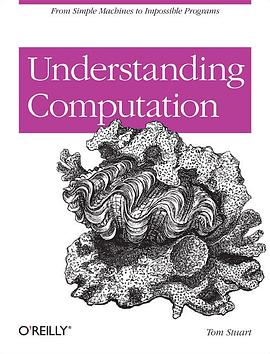 Understanding Computation pdf epub mobi txt 電子書 下載
Understanding Computation pdf epub mobi txt 電子書 下載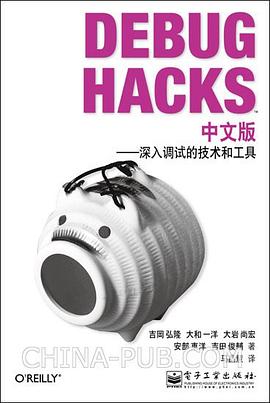 Debug Hacks中文版 pdf epub mobi txt 電子書 下載
Debug Hacks中文版 pdf epub mobi txt 電子書 下載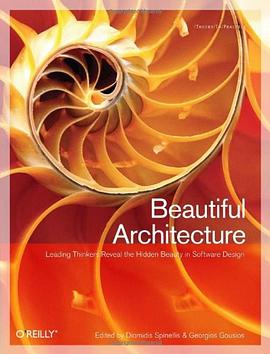 Beautiful Architecture pdf epub mobi txt 電子書 下載
Beautiful Architecture pdf epub mobi txt 電子書 下載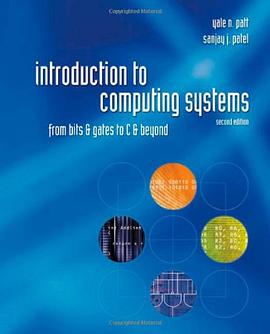 Introduction to Computing Systems pdf epub mobi txt 電子書 下載
Introduction to Computing Systems pdf epub mobi txt 電子書 下載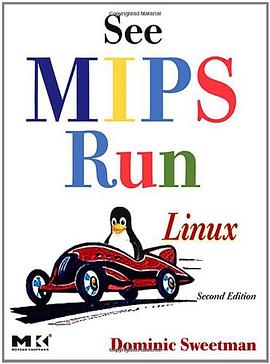 See MIPS Run, Second Edition pdf epub mobi txt 電子書 下載
See MIPS Run, Second Edition pdf epub mobi txt 電子書 下載 Debug It! pdf epub mobi txt 電子書 下載
Debug It! pdf epub mobi txt 電子書 下載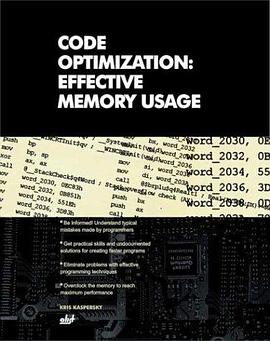 Code Optimization pdf epub mobi txt 電子書 下載
Code Optimization pdf epub mobi txt 電子書 下載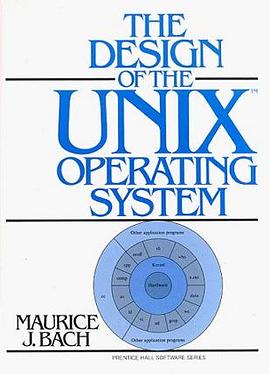 The Design of the UNIX Operating System pdf epub mobi txt 電子書 下載
The Design of the UNIX Operating System pdf epub mobi txt 電子書 下載 Programming Challenges pdf epub mobi txt 電子書 下載
Programming Challenges pdf epub mobi txt 電子書 下載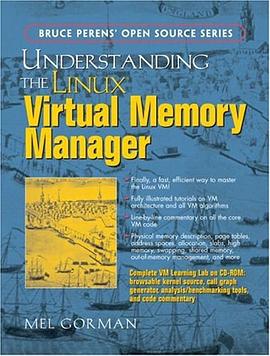 Understanding the Linux Virtual Memory Manager pdf epub mobi txt 電子書 下載
Understanding the Linux Virtual Memory Manager pdf epub mobi txt 電子書 下載
點擊這裡下載
发表于2024-06-22
Binary Hacks ―ハッカー秘伝のテクニック100選 epub 下載 mobi 下載 pdf 下載 txt 電子書 下載 2024
Binary Hacks ―ハッカー秘伝のテクニック100選 epub 下載 mobi 下載 pdf 下載 txt 電子書 下載 2024
Binary Hacks ―ハッカー秘伝のテクニック100選 pdf epub mobi txt 電子書 下載 2024
圖書描述
Binary Hacks from O'Reilly Japan is a book about low-level programming on GNU/Linux systems. The goal of the book is to offer useful but not necessarily very well-known techniques as many as we can to readers.
Table of Contents
Chapter 1. Introduction
1. Introduction to Binary Hacks
2. Terminology of Binary Hacks
3. Using "file" to tell file types
4. Using "od" to dump binary files
Chapter 2. Object Files Hacks
5. Introduction to ELF
6. Static libraries and dynamic libraries
7. Using "ldd" to check dependencies of shared libraries
8. Using "readelf" to see information of ELF files
9. Using "objdump" to dump object files
10. Using "objdump" to disassemble object files
11. Using "objcopy" to embed data in executables
12. Using "nm" to see lists of symbols in object files
13. Using "strings" to extract strings from binary files
14. Using "c++filt" to demangle C++ symbols
15. Using "addr2line" to get file names and line numbers by addresses
16. Using "strip" to delete symbols from object files
17. Using "ar" to modify static libraries
18. How to link C and C++ programs
19. How to avoid symbol collision issues
20. Why PIC code is used for shared libraries on GNU/Linux systems
21. Using "statifier" to create pseudo static executables from dynamic executables
Chapter 3. GNU Programming Hacks
22. Introduction to GCC extensions
23. Using inline assembler with GCC
24. Using GCC's builtin functions for optimization
25. Writing "Hello World" without using glibc
26. Using TLS (Thread Local Storage)
27. Switching glibc's internal libraries by system capabilities
28. Changing behavior of programs by linked libraries
29. Reducing exported symbols of libraries
30. Using versioned symbols to manage compatibility
31. Calling functions before main()
32. How GCC generates trampoline code at runtime
33. Allowing and disallowing executable flags of code on stacks
34. Running code on heaps
35. Creating PIE (Position Independent Executable)
36. Writing synchronized methods in C++
37. Creating singletons in C++
38. Understanding g++'s exceptions (throw)
39. Understanding g++'s exceptions (SjLj)
40. Understanding g++'s exceptions (DWARF2)
41. Understanding runtime cost of g++'s exceptions
Chapter 4. Secure Programming Hacks
42. Introduction to GCC secure programming
43. Using "-ftrapv" to detect integer overflows
44. Using "Mudflap" to detect buffer overflows
45. Using "-D_FORTIFY_SOURCE" to detect buffer overflows
46. Using "-fstack-protector" to protect stacks
47. Why you should use unsigned constants to do bitmask
48. Why big shift operations are dangerous
49. Why you should care difference between 0 and NULL on 64-bit systems
50. Thread-safe functions defined by POSIX
51. Writing signal handlers in a safe manner
52. Using "sigwait" to process async signals synchronously
53. Using "sigsafe" to write signal processing safely
54. Using "Valgrind" to detect memory leaks
55. Using "Valgrind" to detect invalid memory access
56. Using "Helgrind" to debug multi-threaded programs
57. Using "fakeroot" to run programs with fake root privilege
Chapter 5. Runtime Hacks
58. How programs reach main()
59. How system calls are called
60. Using "LD_PRELOAD" to switch shared libraries
61. Using "LD_PRELOAD" to wrap existing functions
62. Using "dlopen" to do dynamic linking
63. Showing backtraces with C programs
64. Checking running process's absolute path
65. Checking loaded shared libraries of running programs
66. Checking memory maps of running programs
67. Using "libbfd" to list symbols
68. Demangling C++ symbols at runtime
69. Using "ffcall" to call functions with dynamic signatures
70. Using "libdwarf" to get debug information
71. Using "dumper" to pretty-print struct variables
72. How to load object files yourself
73. Using "libunwind" to control call chains
74. Using "GNU lightning" to generate code in a portable manner
75. Getting addresses of stacks
76. Using "sigaltstack" to handle stack overflows
77. Hooking entering and exiting of functions
78. Modifying contexts of programs in signal handlers
79. Getting values of program counters
80. Rewriting your programs at runtime
81. Using "SIGSEGV" to validate accessibility of addresses
82. Using "strace" to trace system calls
83. Using "ltrace" to trace function calls in shared libraries
84. Using "Jockey" to record and replay programs
85. Using "prelink" to improve programs starting up time
86. Using 'livepatch" to patch running programs
Chapter 6. Profilers and Debuggers Hacks
87. Using "gprof" to profile programs
88. Using "sysprof" to profile systems very easily
89. Using "oprofile" to profile systems
90. Using "GDB" to control running programs
91. Using debugging support of hardware
92. Setting break points in your C programs
Chapter 7. Misc Hacks
93. How Boehm GC works
94. Why you should be careful about memory ordering of processors
95. Light-weight concurrent processing with PCL (Portable Coroutine Library)
96. Counting clock counts of CPUs
97. How floating numbers are expressed in bits
98. What's special about x86's floating numbers instructions
99. Raising signals for operations resulting infinite or NAN.
100. Further reading
著者簡介
圖書目錄
Binary Hacks ―ハッカー秘伝のテクニック100選 pdf epub mobi txt 電子書 下載
用戶評價
把目前能看懂的hacks讀完瞭。原書很不錯,中文版則充分演繹瞭什麼叫做狗屎一樣的翻譯。
評分又一本被翻譯糟蹋瞭的書。。。
評分把目前能看懂的hacks讀完瞭。原書很不錯,中文版則充分演繹瞭什麼叫做狗屎一樣的翻譯。
評分好
評分把目前能看懂的hacks讀完瞭。原書很不錯,中文版則充分演繹瞭什麼叫做狗屎一樣的翻譯。
讀後感
随便一翻,看到Hack100,文献。 严重怀疑作者没有相关行业背景, 详解Unix编程 应该是 Advanced Programing in the Unix Environment 国内翻译叫做Unix环境高级编程。 计算机的构成和设计, 应该是Computer Organization and Design. 国内翻译我记得是,计算机组织与设计 D...
評分随便一翻,看到Hack100,文献。 严重怀疑作者没有相关行业背景, 详解Unix编程 应该是 Advanced Programing in the Unix Environment 国内翻译叫做Unix环境高级编程。 计算机的构成和设计, 应该是Computer Organization and Design. 国内翻译我记得是,计算机组织与设计 D...
評分《Binary Hacks:黑客秘笈100选》的主题是关于底层程序的技术。说到底层,就是和“原始的”计算机很接近的意思。软件的世界是一个抽象化的积累,逐步演化到现在的阶段。抽象化就是隐藏底层的复杂部分,相比较来说是可以提高生产性、安全性的方法,并给开发者提供程序化的手段。...
評分作者:Satoru Takabayashi 出版社:O'Reilly Japan
評分内容非常好,翻译太**,作者居然还敢署名,看完想抽他。。。 出版社也不负责任,没有专业的审校吗。。。 翻译不好至少可以出个英文版嘛,现在也没得其它选择。。。 字数不够: 内容非常好,翻译太**,作者居然还敢署名,看完想抽他。。。 出版社也不负责任,没有专业的审校吗...
Binary Hacks ―ハッカー秘伝のテクニック100選 pdf epub mobi txt 電子書 下載 2024
分享鏈接
相關圖書
 時間がないからなんでもできる pdf epub mobi txt 電子書 下載
時間がないからなんでもできる pdf epub mobi txt 電子書 下載 琉球王國と戦國大名 pdf epub mobi txt 電子書 下載
琉球王國と戦國大名 pdf epub mobi txt 電子書 下載 デート・ア・ライブ 01 pdf epub mobi txt 電子書 下載
デート・ア・ライブ 01 pdf epub mobi txt 電子書 下載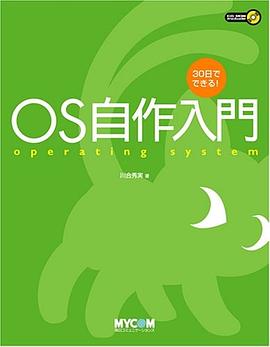 30日でできる! OS自作入門 pdf epub mobi txt 電子書 下載
30日でできる! OS自作入門 pdf epub mobi txt 電子書 下載 風の男 白洲次郎 pdf epub mobi txt 電子書 下載
風の男 白洲次郎 pdf epub mobi txt 電子書 下載 例のプール pdf epub mobi txt 電子書 下載
例のプール pdf epub mobi txt 電子書 下載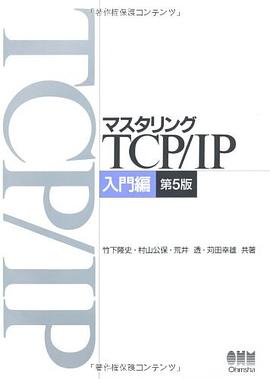 マスタリングTCP/IP 入門編 第5版 pdf epub mobi txt 電子書 下載
マスタリングTCP/IP 入門編 第5版 pdf epub mobi txt 電子書 下載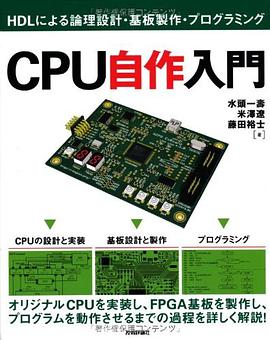 CPU自作入門 ~HDLによる論理設計・基闆製作・プログラミング~ pdf epub mobi txt 電子書 下載
CPU自作入門 ~HDLによる論理設計・基闆製作・プログラミング~ pdf epub mobi txt 電子書 下載 魔法戦記リリカルなのはForce 01 pdf epub mobi txt 電子書 下載
魔法戦記リリカルなのはForce 01 pdf epub mobi txt 電子書 下載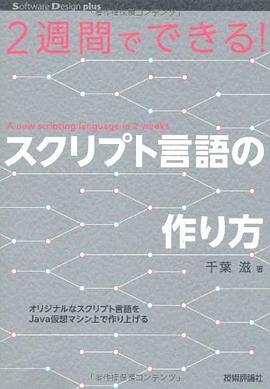 2週間でできる! スクリプト言語の作り方 pdf epub mobi txt 電子書 下載
2週間でできる! スクリプト言語の作り方 pdf epub mobi txt 電子書 下載 なんにもない部屋で赤ちゃんを育ててみれば pdf epub mobi txt 電子書 下載
なんにもない部屋で赤ちゃんを育ててみれば pdf epub mobi txt 電子書 下載 清代中國琉球貿易史の研究 pdf epub mobi txt 電子書 下載
清代中國琉球貿易史の研究 pdf epub mobi txt 電子書 下載 ベーシック流通と商業 pdf epub mobi txt 電子書 下載
ベーシック流通と商業 pdf epub mobi txt 電子書 下載 戀する寄生蟲 pdf epub mobi txt 電子書 下載
戀する寄生蟲 pdf epub mobi txt 電子書 下載 神のみぞ知るセカイ 11 pdf epub mobi txt 電子書 下載
神のみぞ知るセカイ 11 pdf epub mobi txt 電子書 下載 21世紀中小企業論 pdf epub mobi txt 電子書 下載
21世紀中小企業論 pdf epub mobi txt 電子書 下載 はじめて齣會う心理學(改訂版) pdf epub mobi txt 電子書 下載
はじめて齣會う心理學(改訂版) pdf epub mobi txt 電子書 下載 朝鮮王朝の貧睏政策:日中韓比較研究の視點から pdf epub mobi txt 電子書 下載
朝鮮王朝の貧睏政策:日中韓比較研究の視點から pdf epub mobi txt 電子書 下載 アルゼンチンババア pdf epub mobi txt 電子書 下載
アルゼンチンババア pdf epub mobi txt 電子書 下載 機巧少女は傷つかない〈2〉 pdf epub mobi txt 電子書 下載
機巧少女は傷つかない〈2〉 pdf epub mobi txt 電子書 下載



